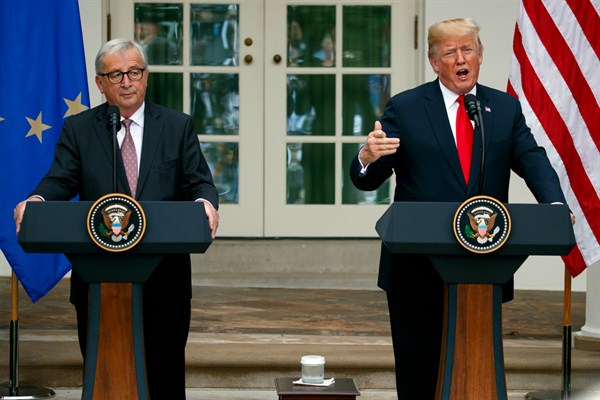The U.S. announced last week that it will begin imposing new tariffs on $7.5 billion in imports from the European Union on Oct. 18. Unless there is a quick settlement to an underlying dispute over plane-manufacturing subsidies, which seems unlikely given that it has dragged on for 15 years, American lovers of single-malt scotch, French wine and cheese, Spanish olive oil and English wool sweaters had better stock up on these and other items imported from Europe.
Yet these tariffs aren’t like the others imposed so far under President Donald Trump, and it is premature to assume they signal the start of a bigger trade war with Brussels. This case is different because the World Trade Organization authorized the U.S. to impose tariffs on European exports. Known in legal parlance as a “suspension of concessions,” WTO members can legitimately use tariffs when another member fails to comply with a ruling against it by a dispute-settlement panel. In this case, WTO panels have ruled on multiple occasions that the EU and certain member states were providing illegal subsidies to aviation giant Airbus and had failed to fully fix the problem.
The original WTO panel was created in July 2005 in response to a U.S. complaint that the EU, along with France, Germany, Spain and the U.K. had provided a range of illegal subsidies to Airbus over many years, including subsidized financing for the development of new plane models, known as “launch aid.” A few months later, however, the EU lodged a complaint against the U.S. alleging that Boeing was receiving illegal subsidies as a result of contracts and research-and-development support from NASA and the Defense Department, as well as tax breaks from the state of Washington. The full history of the tensions over passenger-plane manufacturing goes all the way back to the 1970s.

